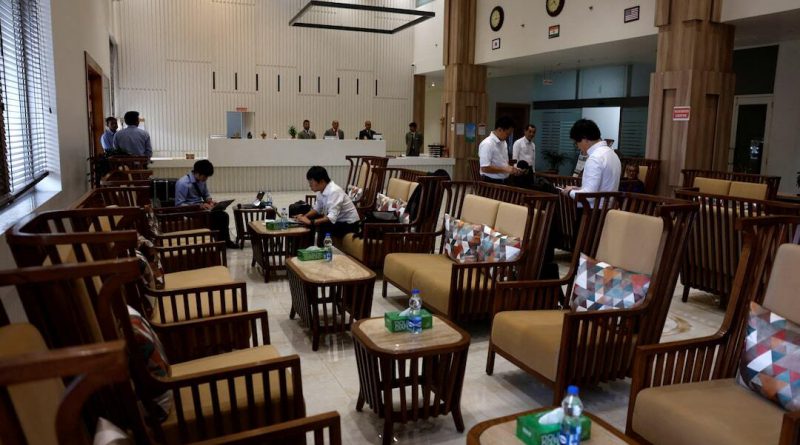Indian Town Becomes Welcoming Haven for Japanese Auto Expats
While Gujarat’s vegetarian culture and strict regulations on alcohol pose unique challenges, these hotels and the expat community have found creative solutions.
In the industrial town of Vithalapur, Gujarat, Japan meets India in a remarkable fusion of business and culture. Hotels like Osaka Palace and AJU Imperial are bringing a slice of Japan to India, serving authentic ramen, tempura, and sushi for the growing community of Japanese auto engineers and managers living in the region.
Vithalapur, located just 75 km east of the state capital Gandhinagar, has transformed from quiet farmland into a thriving industrial hub, driven by increased Japanese investment in Indian manufacturing. This growth aligns closely with Prime Minister Narendra Modi’s push to attract foreign investment, particularly in the automotive and electronics sectors.
Honda’s motorcycle unit has been operating in Vithalapur for nearly a decade, while Suzuki’s plant recently began producing electric cars. Supporting industries, including auto suppliers and other Japanese firms, have established operations in the area. Government data shows that Japanese direct investment in India reached $2.5 billion in the past year, a 27% increase compared with four years ago.
Hotels and accommodations have evolved to meet the needs of this international workforce. The 110-room AJU Imperial, which stands for “All Japanese Utility,” offers home comforts such as Japanese-language signage, imported sushi ingredients, and high-tech washlet toilets. Mizuki Ryokan and Midori are among several other hotels providing long-term housing for Japanese expats. The town’s growing reputation has even attracted global brands, with Hyatt planning to open a 108-room property later this year.
“These hotels are designed to make our guests feel at home, so they can focus on their work while enjoying familiar cuisine and amenities,” said Prakash Yadav, founder and managing director of AJU Imperial. The hotels serve as cultural bridges, helping expats acclimate to life in Gujarat while maintaining a connection to Japanese traditions.
While Gujarat’s vegetarian culture and strict regulations on alcohol pose unique challenges, these hotels and the expat community have found creative solutions. Special permits allow limited alcohol purchases, and imported ingredients ensure high-quality Japanese meals. Such measures enhance the comfort of international staff while fostering cultural exchange and appreciation.
Vithalapur’s development exemplifies how international collaboration can drive economic growth while embracing diversity. Japanese expats contribute their expertise to India’s booming auto industry, and in return, the region provides a welcoming environment with tailored amenities and services. The town’s transformation demonstrates the benefits of global investment, cross-cultural understanding, and innovative hospitality.
As Japanese companies continue to expand in India, Vithalapur is emerging as a model for international work-life integration, offering a unique blend of industrial opportunity and cultural accommodation. The experience highlights how local communities and businesses can support global talent, enhancing both economic development and intercultural connections.
In Vithalapur, Indian hospitality meets Japanese precision, creating a harmonious environment where international professionals can thrive and contribute to the region’s continuing success story.



